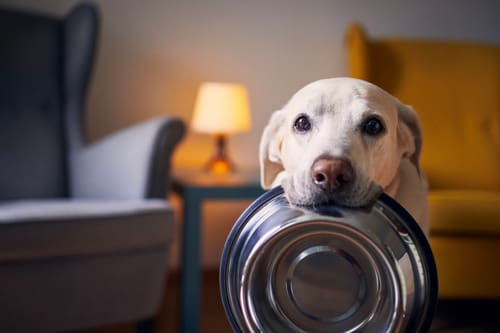Bird Flu in Pets: Causes and Symptoms to Watch For
Bird flu, also known as avian influenza (H5N1), is often associated with outbreaks in poultry, but did you know it can also affect household pets? While bird flu primarily impacts birds, dogs and cats can contract the virus by consuming raw or unprocessed poultry, milk, or meat from infected animals. This poses a growing concern for pet owners as cases of H5N1 continue to spread. Veterinary experts, including the American Veterinary Medical Association (AVMA), warn against feeding raw diets to pets due to the risk of disease transmission. Recent recalls of raw poultry products by the Food and Drug Administration (FDA) further highlight the dangers. Below, we’ll help you understand how bird flu spreads to pets, the symptoms to watch for, and how to reduce your pet’s risk is essential for keeping them safe.

How Pets Can Contract Bird Flu
Bird flu in pets is primarily transmitted through the ingestion of contaminated animal products. While direct transmission between cats or dogs has not been observed, eating raw or undercooked meat, dairy, or eggs from infected poultry or cattle poses a significant risk.
Potential Risk Factors for Bird Flu in Pets
- Raw Diets: Pets consuming raw poultry or unpasteurized milk are at a higher risk of contracting H5N1.
- Exposure to Wild Birds: Outdoor cats and dogs that hunt wild birds may be exposed to the virus through their prey.
- Contaminated Surfaces: Pets can pick up the virus from infected areas, including farms, bird feeders, or environments with high bird activity.
- Close Contact with Infected Animals: Although rare, pets exposed to infected birds or poultry farms may contract the virus.
Symptoms of Bird Flu in Pets to Look Out For
Detecting bird flu in pets early is crucial to seeking veterinary care. Symptoms may resemble those of other respiratory illnesses, making it important to monitor any unusual changes in your pet’s health. Here are some common symptoms to watch for:
- Fever and Lethargy: Pets with H5N1 may become weak, tired, or uninterested in daily activities.
- Loss of Appetite: If your pet suddenly refuses food or eats significantly less, it could be a sign of infection.
- Eye and Nasal Discharge: Red or inflamed eyes, along with nasal discharge, may indicate respiratory distress.
- Difficulty Breathing: Labored breathing, coughing, or wheezing should not be ignored.
- Neurological Symptoms: More severe cases can cause tremors, seizures, incoordination, or even blindness.
If your pet exhibits any of these signs, contact Veterinary Specialty Center at (847) 459-7535.
The Dangers of Raw Diets for Pets
Raw feeding has become increasingly popular among pet owners who believe it provides a more natural diet. However, recent findings emphasize the risks associated with raw food consumption, particularly in light of the ongoing spread of H5N1.
Why Raw Diets Increase Infection Risk
- Lack of Virus Elimination: Cooking, canning, and pasteurization neutralize pathogens, making commercial pet food a safer option.
- Bacterial Contamination: Raw meat often contains bacteria like Salmonella and E. coli, compounding health risks.
- Increased Viral Exposure: Feeding pets raw poultry, eggs, or unpasteurized dairy from infected animals can directly transmit H5N1.
The AVMA strongly advises against raw feeding, and pet owners should be mindful of FDA recalls concerning raw food products.
Tips for Preventing Bird Flu in Pets
Although bird flu in pets is rare, prevention remains the best strategy for protecting your furry friends. By making small adjustments to your pet’s diet and environment, you can significantly reduce their risk of exposure.
- Feed cooked or commercial pet food which undergoes safety measures that eliminate viruses and bacteria.
- Avoid raw or unpasteurized products such as raw meat, eggs, or dairy, particularly from unknown sources.
- Keep cats indoors and supervise dogs during walks to prevent hunting wild birds.
- Disinfect food and water bowls, keep feeding areas sanitary, and regularly clean pet bedding.
- Monitor FDA food recalls and veterinary alerts regarding potential outbreaks.
When Should You Contact VSC?
Early detection and intervention are crucial when dealing with bird flu in pets. If your pet exhibits any of the symptoms associated with H5N1, seeking veterinary care promptly can make all the difference in their recovery. Veterinary Specialty Center in Bannockburn, IL, is equipped to handle infectious diseases and provide the necessary care for pets with flu-like symptoms. Call (847) 459-7535 or schedule an appointment if you suspect your pet may have been exposed to bird flu. Protecting your pet starts with awareness, safe feeding practices, and proactive veterinary care.
Recent Posts
About Us
Veterinary Specialty Center is a privately-owned, 24/7 emergency and specialty animal hospital located in Bannockburn, IL. Since 1976, their team of board-certified specialists has delivered advanced, compassionate care, leading the way with innovative treatments and a collaborative approach.
